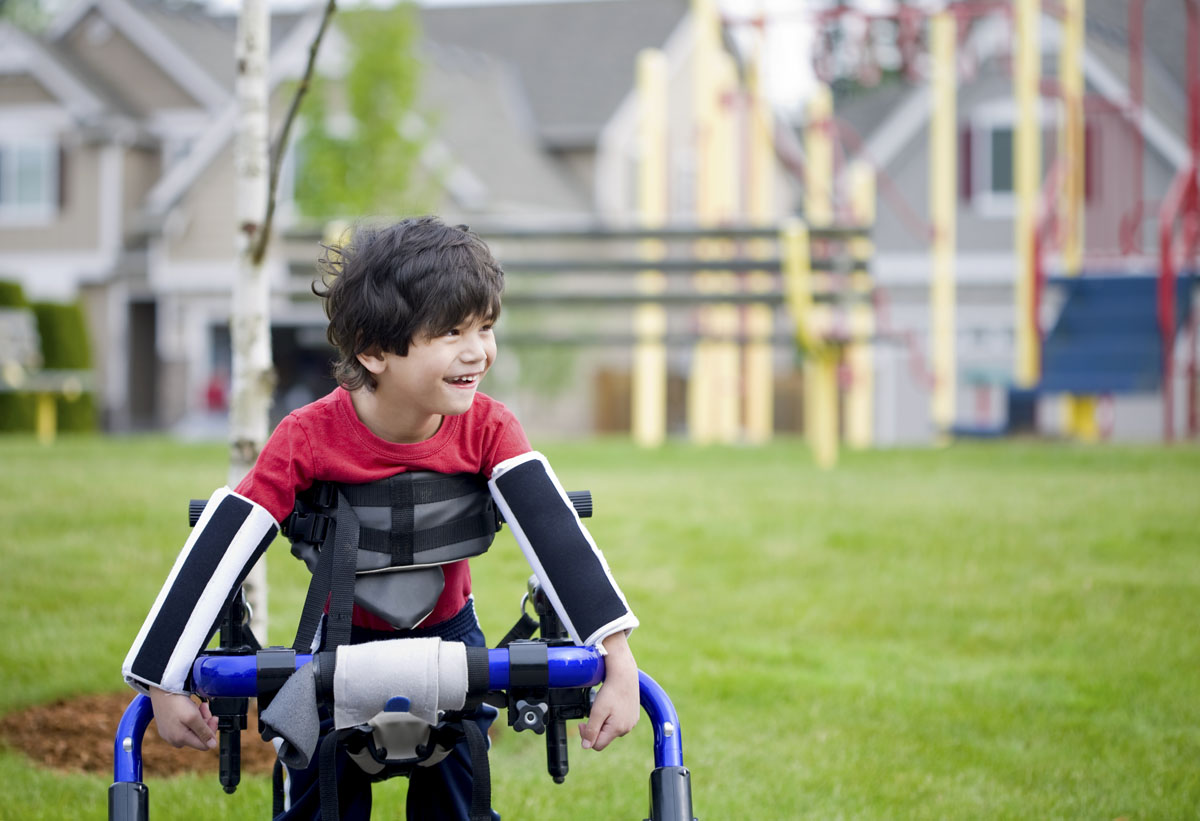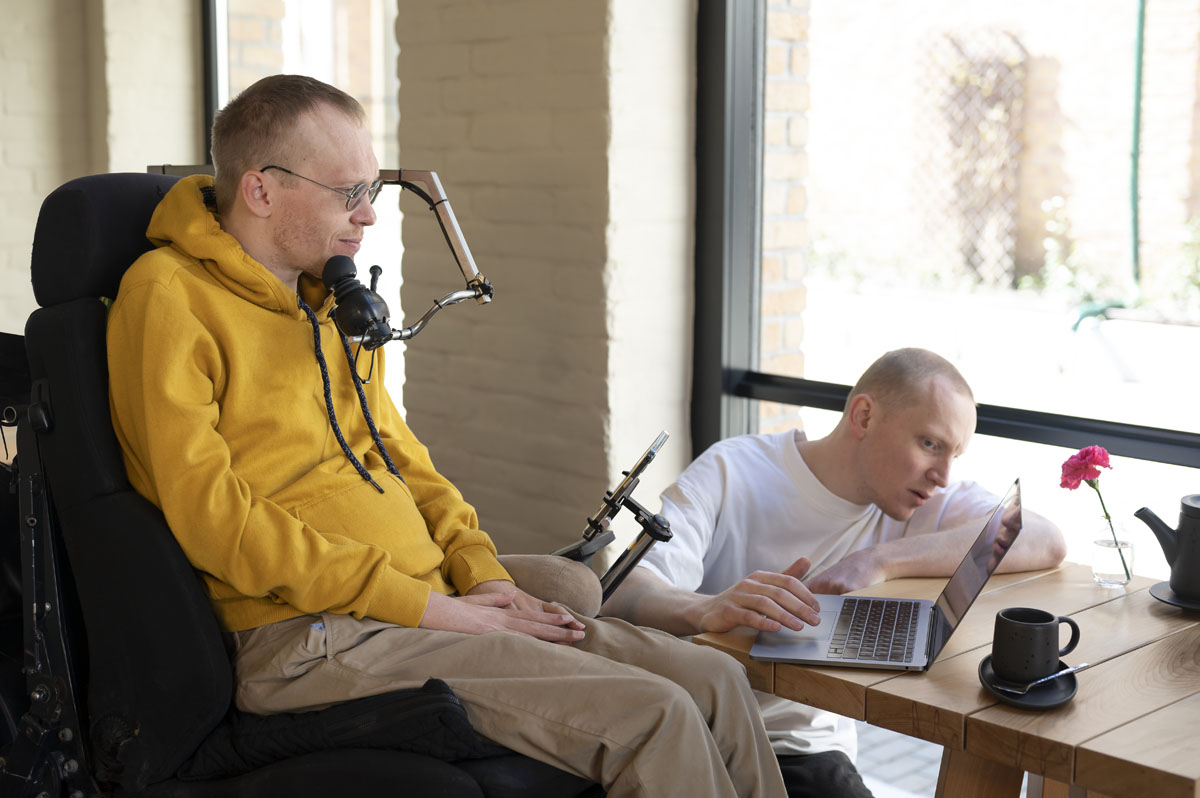Your own values, attitudes and bias can affect the way you work and communicate in the disability and aged care industries.
Because people with disabilities have been institutionalised and segregated in the past, our experiences with disability can be limited. Society often sees people with disability as people who are ‘not like us’.

Image by Jaren Jai Wicklund, Shutterstock, Shutterstock licence
Discrimination and negative attitudes about the abilities and value of older people and people with disabilities are sadly common in our society. People face lifelong disadvantage by being overlooked or undervalued by others.
Your own opinion or attitude towards the person should not impact on the quality of support you provide, affect how you go about your work, how you approach a task or the way you deal with others. The first step to making sure this does not happen is to confront your own biases, judgements or conflicting attitudes.
Once you have developed an understanding of situations and behaviours that cause you to interact differently with the people you support, you are more likely to be aware of how to control these feelings and reduce their impact on others.
 Select to learn more
Select to learn more
Select each bar to expand and reveal further information about common attitudes that can potentially affect the person.
The effect of negative attitudes on the person
Stigma is the result of these negative attitudes. Older people and people with disabilities often carry these attitudes with them into their own older age. They might feel a sense of being ashamed rather than proud of who they are. They might believe that they are not useful to anyone or of value to society.
When you and others believe something negative about yourself, your actions and behaviours often follow. When a negative judgement has been made about a person, certain things can happen to that person’s quality of life.
- The person making the judgement is less likely to approach or talk to the person in a meaningful way.
- The person being judged can pick up subtle or obvious clues that they are not considered to have social worth.
- The person lowers their own opinion and expectations of themselves, too.
- The person being judged is given fewer opportunities and less motivation to make friends, achieve goals and enjoy life.
- Every time they are judged, they might see further confirmation of their lack of value to others.
- Over time, a low sense of self-worth can lead to anxiety and depression.
Differences in values
In any type of community services work, you might find challenges in avoiding judgements. People with disabilities and older people can have as many social and cultural differences as the rest of the population. However, in disability and aged care work, you may often be faced with behaviours, actions and lifestyles that conflict with your own ideas and values.
People you support might have:
- mental illness
- issues with drug or alcohol use
- behaviours of concern that include aggression or public sexual behaviours
- sexual needs that are met in ways you might not agree with, such as visiting a sex worker
- dependence on welfare that you feel is not deserved
- identities that include a range of sexual orientations and gender identities.
We are all the product of our own cultural upbringing and family beliefs. This is natural, but the first step to overcoming bias and reducing the impact of your own ideas about how people with disabilities should behave or act is to confront these judgements head-on.
You must support a person with a disability to make the life choices that are their own, as long as those choices do not cause harm to the person or to anyone else.
 Case study
Case study
Raj is a 30-year-old man with cerebral palsy. His support worker Tony is very religious and does not
believe
in sex outside of marriage. Raj wants to visit a sex worker and asks Tony to help him contact the
sex
worker by phone to make a booking, as he is not able to do this himself.

Image by freepik, Freepik, Freepik licence
Although prostitution goes against Tony’s religious beliefs, he knows that it is not up to him to
make
judgements about Raj’s lifestyle. He is there to support him to do the things he would otherwise be
doing on
his own. Tony makes the booking but lets his manager know that he would feel uncomfortable assisting
Raj to
the brothel. His manager understands this and she tells John that she can find another worker for
this part of
the task. Tony does not lecture Raj or make him feel that he is judging him. He merely explains that
he
would feel more comfortable with another worker taking him to the venue.
Difference in personality types
You might easily find yourself developing ‘favourite’ clients, while finding others difficult to be around. This can erode the person’s right to equal time and support. In many ways, this behaviour from workers can have compounding effects over time.
Sometimes the clients who are less fun or interesting to be around are the very ones who need your company the most. The less experience the person has interacting socially with workers and others, the fewer social skills they are likely to have, and the more likely they are to withdraw.
As a worker paid to provide equal and non-judgemental support to all clients, you must never use excuses for treating a particular client differently, such as:
Treat every person as an individual and acknowledge their differences. Make sure that your personal values and attitudes do not affect the supports that you provide. Having a physical disability does not imply that someone’s intellectual capacity is diminished, so it is vital not to make assumptions or treat people in a childlike manner.
It is inevitable that you will feel more comfortable with some clients than others. This may be due to bias, values, attitudes or previous experience you have had with different clients.
Here are some ways to work effectively, irrespective of bias or personal feelings about different clients:
- Make an active choice to respect and support the person, irrespective of bias or negative feelings towards them.
- Monitor your reactions and responses towards all clients. By self-reflecting on how you may behave differently depending on the client, you are one step closer to self-awareness and respecting people.
- Speak about clients in a respectful and dignified way when they are not nearby. Doing this shows maturity and integrity. It can also help to change how you feel about the person.
- Don’t participate in negative staff discussions about clients.
- Remember: it is not your job to like the clients; it is your job to support them.
 Record your thoughts
Record your thoughts
It is important for you to be able to recognise, understand and challenge your own biases when you are working with clients to avoid favouritism and to ensure you provide equal attention to all clients.
Reflect on your own personal attitudes and values and answer the following questions.
Document your thoughts to each of the questions presented. When you have finished, select Create Document to export your content and keep for later.
Background Colour
Font Face
Font Kerning
Font Size
Image Visibility
Letter Spacing
Line Height
Link Highlight
Text Colour